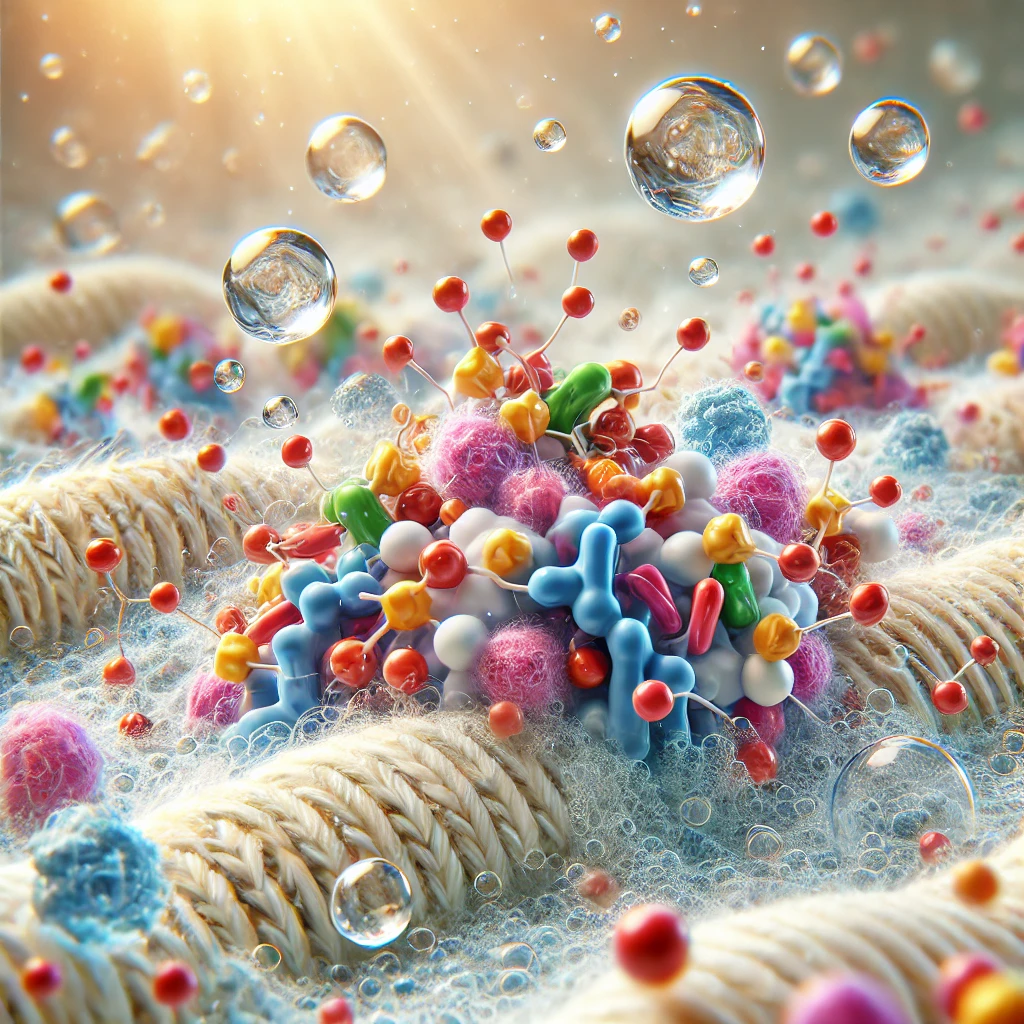

Enzymes For Detergent Industry
Detergent enzymes are crucial for enhancing the effectiveness of laundry and cleaning products, making them more efficient and eco-friendly. At Wilton Bioscience, we specialize in providing a range of high-performance enzymes designed for use in various detergent formulations. Enzymes such as proteases, amylases, cellulases, and lipases work synergistically to break down tough stains from proteins, starches, fats, and cellulose, ensuring that fabrics are thoroughly cleaned even at lower temperatures. By incorporating our enzyme solutions, manufacturers can create detergents that deliver exceptional cleaning power while reducing the need for harsh chemicals and high-energy washing cycles.
In addition to improving cleaning efficiency, detergent enzymes contribute to environmental sustainability by promoting energy savings and reducing water consumption. Enzymatic detergents enable effective cleaning in cold water, which not only saves energy but also helps to preserve the quality of fabrics over time. Furthermore, by minimizing the reliance on phosphates and other harmful additives, our enzymes support the development of greener cleaning products that are safer for the environment. At Wilton Bioscience, we are committed to providing innovative detergent enzyme solutions that enhance cleaning performance while promoting sustainable practices in the detergent industry, ensuring a cleaner and greener future for consumers and manufacturers alike.
EnzymeMakers
Detergent Enzyme Types
FAQ
Frequently Asked Questions
Detergent enzymes are natural proteins that enhance the cleaning power of laundry and cleaning products. They work by breaking down specific types of stains, such as proteins, fats, and carbohydrates, making them easier to remove from fabrics and surfaces. Commonly used in household and industrial detergents, these enzymes improve the overall effectiveness of cleaning formulations.
Common types of enzymes found in detergents include proteases, which break down protein stains; amylases, which target starches; lipases, which help remove grease and fat; and cellulases, which improve fabric care and brightness. These enzymes work together to provide comprehensive cleaning solutions for various types of stains and fabrics.
Detergent enzymes benefit cleaning processes by allowing effective stain removal at lower temperatures, which saves energy and protects fabrics. They enhance the cleaning performance of detergents, allowing for cleaner clothes and surfaces while minimizing the need for harsh chemicals. This results in a more eco-friendly cleaning solution that is safer for both users and the environment.
Yes, detergent enzymes are safe for use in household cleaning products when formulated according to safety regulations. They are derived from natural sources and are designed to be effective yet gentle on fabrics and surfaces. Properly used, enzyme-based detergents provide powerful cleaning without posing significant risks to health or the environment.